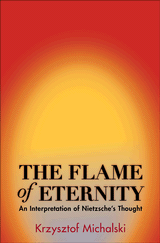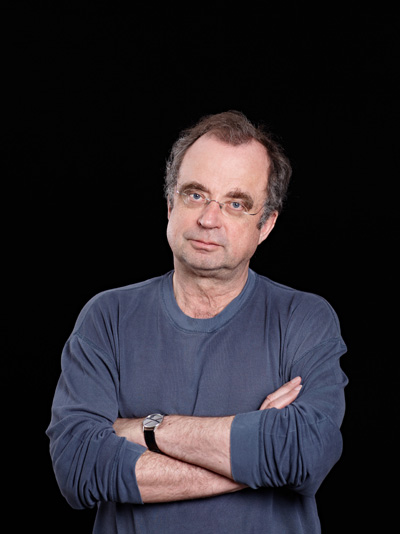Stringent book budget notwithstanding, I finally broke down and bought a copy of Krzysztof Michalski‘s The Flame of Eternity: An Interpretation of Nietzsche’s Thought. I carefully re-marked, lightly in pencil, the passages I had noted in my borrowed library book. Michalski was a leading European thinker and founder of the Institut für die Wissenschaften vom Menschen, where I was a fellow (I wrote about him here). He died in February, at 64. His reflections on death provide some stunning passages in the book:
Death touches me differently, more radically and imperceptibly, than any other relation or relationship: it touches me not as a specimen of my species, nor as a member of my society, nor as a representative of some profession, but me as me alone, the me who this time cannot be replaced by anyone else, for no one else can die in my place. Death is closer to me than any character trait or any momentary characterization, it is more mine than the person I love most or my most important task. Without it – without death – there is no me. Death defines me: me, an unrepeatable individual, and not merely a particular case of something. It is only this prospect of death that makes the life I am living my own. …
 If the confrontation with death characterizes my life every day and not just on occasion, then every moment of that life – and not just the very last one – contains some trace of it. Death is not merely one of many – the most important – moments in my life, merely one of many events. No moment, no instant of my life, is comprehensible without the relation to death concealed within it, without the relation to the nothingness of the world, without the negation of everything that is familiar, of everything comprehensible. The possibility of the end of the world, the Apocalypse, is inscribed in every moment, in each individual instant of my life. This possibility severs the continuity of my time; time is no longer the diligent accumulation of meaning, the gradual construction of identity, morning to night, Sunday to Saturday. Between morning and night, today and tomorrow, between ‘now’ and ‘in a minute,’ the bottomless abyss of nothingness opens wide, the end of everything I know, of everything I can know, of everything I can rely on. …
If the confrontation with death characterizes my life every day and not just on occasion, then every moment of that life – and not just the very last one – contains some trace of it. Death is not merely one of many – the most important – moments in my life, merely one of many events. No moment, no instant of my life, is comprehensible without the relation to death concealed within it, without the relation to the nothingness of the world, without the negation of everything that is familiar, of everything comprehensible. The possibility of the end of the world, the Apocalypse, is inscribed in every moment, in each individual instant of my life. This possibility severs the continuity of my time; time is no longer the diligent accumulation of meaning, the gradual construction of identity, morning to night, Sunday to Saturday. Between morning and night, today and tomorrow, between ‘now’ and ‘in a minute,’ the bottomless abyss of nothingness opens wide, the end of everything I know, of everything I can know, of everything I can rely on. …
Reading every moment of my life with the possibility of nothingness, thereby introducing a radical, irreparable discontinuity, the prospect of death, by the same token, opens my life to something entirely new, to the possibility of an entirely new form of life…. On the other side of the fissure my identity up to now is just ashes, and the ‘I’ that I know becomes a dead letter.
Thus the prayer of Simone Weil: ‘Father, tear this body and this soul away from me, to make of them your things, and let nothing remain of me eternally but that tearing-away itself.’
Tags: Krzysztof Michalski, Simone Weil


